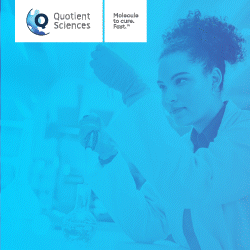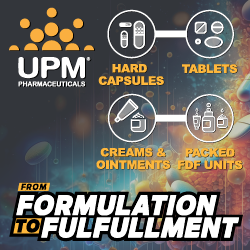Auris Medical Completes Enrollment of Phase 3 Trial
Auris Medical Holding AG recently announced it has completed patient enrollment in the Phase 3 HEALOS clinical trial of AM-111 in idiopathic sudden sensorineural hearing loss (ISSNHL), also known as sudden deafness. Top-line results from the HEALOS trial are expected in the fall of 2017.
“We are very pleased that our first Phase 3 clinical trial of AM-111 is now fully enrolled with 256 patients,” commented Thomas Meyer, Auris Medical’s Founder, Chairman, CEO. “AM-111 could become the first specific therapeutic for patients with acute inner ear hearing loss, a condition that can severely impact day-to-day functioning. We are proud to have pioneered the development of AM-111 and look forward to results from the HEALOS trial later this year.”
The HEALOS trial is a randomized, double-blind, placebo-controlled study evaluating the efficacy, safety, and tolerability of single-dose intratympanic administration of AM-111. The trial is being conducted in several European and Asian countries and has enrolled patients who are suffering from severe to profound ISSNHL within 72 hours from onset. Patients were randomized to receive AM-111 0.4 mg/mL, 0.8 mg/mL, or placebo in a 1:1:1 ratio. The primary efficacy endpoint for the trial is the improvement of pure tone hearing thresholds from baseline to Day 28.
HEALOS is the first of two pivotal trials in Auris Medical’s Phase 3 clinical development program for AM-111. The second Phase 3 trial, ASSENT, is set to enroll approximately 300 patients. Auris Medical expects to announce top-line results from the ASSENT trial in the second half of 2018.
Acute injury to the cochlea, eg, from overexposure to noise, bacterial, or viral infections, inflammation, or vascular compromise, may result in damage to inner ear hair cells and neurons and acute hearing loss. Thanks to cellular defenses and intrinsic repair mechanisms, a certain amount of hearing loss can be recovered in the subsequent days and weeks following the insult. However, the remaining hearing loss is irreversible. Acute inner ear hearing loss may be accompanied by other disorders of the inner ear such as dizziness or tinnitus, and if it develops into permanent hearing loss, it may have chronically debilitating consequences. Hearing loss may have a serious impact on professional and personal lives, eg, through avoidance or withdrawal from social situations, reduced alertness, and increased risk to personal safety, impaired memory, and ability to learn new tasks, or reduced job performance and earning power. To date, there exists no treatment for acute inner ear hearing loss with proven efficacy.
AM-111 contains brimapitide, or D-JNKI-1 (D-stereoisomer of c-Jun N-terminal Kinase Inhibitor 1), a cell-penetrating inhibitor of the JNK stress kinase. JNK is activated following various types of cochlear insults (stress) that cause acute inner ear hearing loss and plays a key role in the apoptosis of cochlear hair cells and neurons as well as in inflammatory responses. By blocking JNK, AM-111 protects stress-injured cochlear cells and helps to prevent or reduce chronic hearing loss. The otoprotective effects of AM-111 have been demonstrated in various animal models of cochlear stress, including acute acoustic trauma, acute labyrinthitis (inflammation), drug ototoxicity (aminoglycosides), bacterial infection, cochlear ischemia, and cochlear implantation trauma. Clinically, AM-111 has been evaluated in two completed trials and is currently being tested in two pivotal Phase 3 trials. It is delivered by intratympanic administration in one single dose. AM-111 has orphan drug designation from both the US FDA and the European Medicines Agency and fast track designation from the FDA.
Auris Medical is a Swiss biopharmaceutical company dedicated to developing therapeutics that address important unmet medical needs in neurotology. The company is focused on the Phase 3 development of treatments for acute inner ear hearing loss (AM-111) and for acute inner ear tinnitus (Keyzilen; AM-101) by way of intratympanic administration with biocompatible gel formulations. In addition, Auris Medical is developing intranasal betahistine for Meniere’s disease and vestibular vertigo (AM-125) as well as early stage research and development projects. The company was founded in 2003 and is headquartered in Zug, Switzerland. For more information, visit www.aurismedical.com.
Total Page Views: 3090












